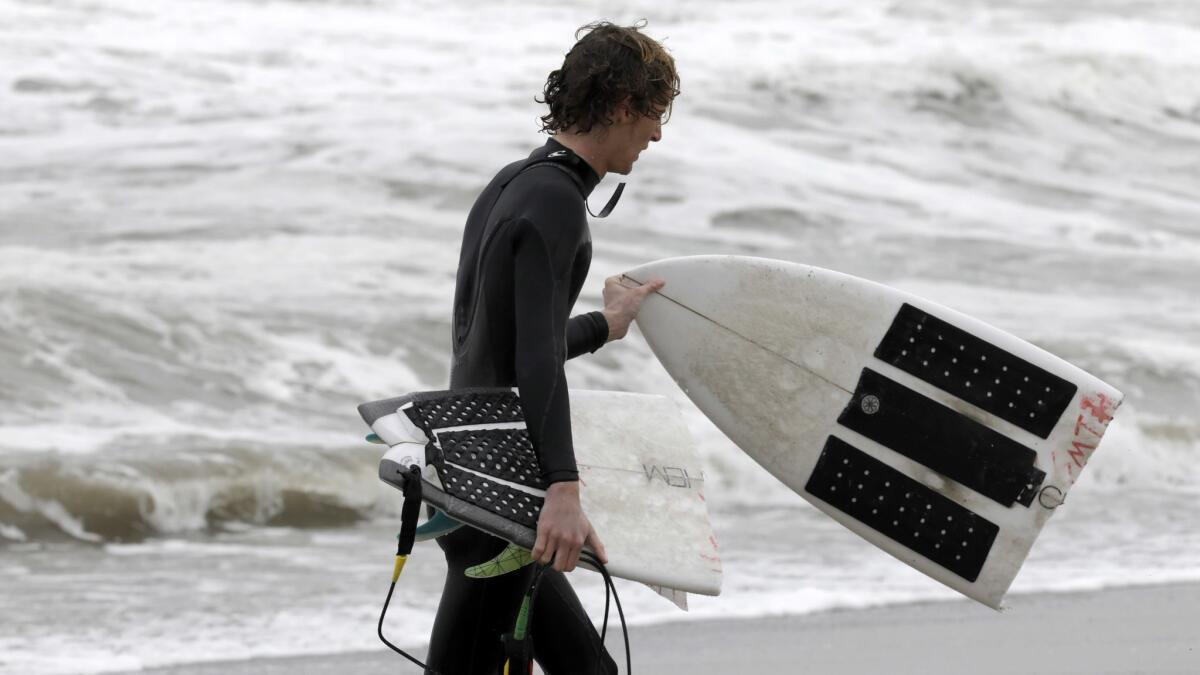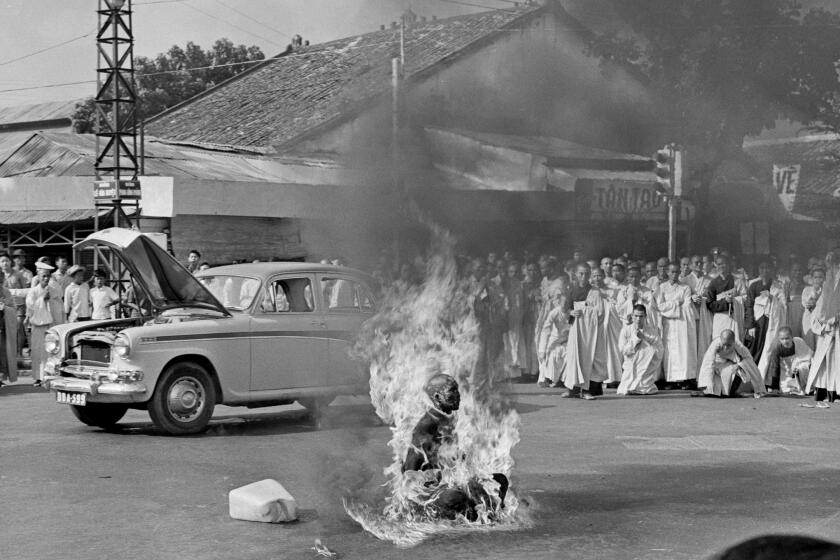Op-Ed: Does California’s commitment to happiness end up leaving us bereft?

When I was growing up in England in the 1960s, my friends and I turned our gaze constantly toward California. Not just because of its sunlight (set against the low gray skies outside our windows) or its long horizons and air of freedom, but because of the optimism that seemed to halo the state’s very name. The West’s Far West — America squared — appeared to exist in the optative, if only mood that Emerson extolled. In the world capital of dreams, you could be anything you wanted.
Then, to my joy, my parents were invited to teach in Santa Barbara, and suddenly I had a foot in not just the Promised Land, but the epicenter of unending promise. When my friends visited from England, we’d pile into my father’s red-and-black Plymouth Duster and drive up to Berkeley or the Haight, stopping off to gaze at the sunlit lawns and great expanse of Pacific Ocean behind the guardhouse at the Esalen Institute. “Human potential” was a phrase we hadn’t heard much in the Old World; reality was the watchword there, even as we sang hymns in Latin and wore tail-coats to class because that was what students had done since the 15th century.
By the time I started spending more time in the Far West, in my late 20s, however, I began to notice something unsettling: In the Land of Dreams people seemed to find the love of their lives or their very purpose just last week. Yet all of it could be replaced by a new purpose, a superseding passion, a few days later. Foundations are not easily laid down in a place rooted in the future tense, where every notion is rebooted like a script in permanent turnaround.
I’m ever more inclined to think that dreams are only as strong as the realities they contain.
Of course, for far too many, the California Dream can come very close to a nightmare: a third of the nation’s homeless live in our state. And yet the California Dream, like the American Dream of which it is a golden distillation, really does get refreshed every day by determined newcomers who so believe it to be true that they arrive in San Ysidro or Cupertino and make it so. Still, I had to wonder: Could perpetual becoming ever get me anywhere?
In 1987 I moved to Japan and was startled to notice neighbors who seemed infinitely more cautious, more circumscribed in expectation, than the friends I had in Santa Barbara. They confined their dreams to Sundays and holidays and didn’t rely on happy endings. In the 1990s, famously, the U.S. won 20 times more Nobel Prizes per capita than Japan, while Japan led the world in individual patents. People there fashioned small things perfectly in corners, rather than trying to remake the whole world, or their whole lives.
For my friends around Kyoto, potential seemed to lie less in the constant pursuit of happiness than in the Buddhist notion of the reality of suffering. After the 2011 tsunami that swept more than 18,000 Japanese to sudden deaths, I encountered more anxiety in Santa Barbara than among my uncomplaining and resilient neighbors around Kyoto.
Enter the Fray: First takes on the news of the minute »
As I shuttled back and forth between the opposite Pacific coasts — and between the values I projected onto each — I came to feel that a grounding in the truths of real life might be a surer basis for durable happiness than never-ending hopefulness. Few things are more dangerous than lofty expectations, and endless summer leaves little space for fall. I now love the autumn; uninterrupted sunshine offers us scant practice in dealing with sudden storms. When wildfire, earthquake or grim diagnosis overturns life in a second, “blue sky thinking” can leave us in the dark.
I never forget that Japan suffers from social pressures so asphyxiating that I’m hourly grateful I’m not Japanese. As many as 1 million people there are shut-ins, preferring life in their heads to interactions with others; in recent years there has been a suicide in Japan every 15 minutes. The economy has been stagnant for more than 20 years.
But I’m ever more inclined to think that dreams are only as strong as the realities they contain. I’ll always be invigorated by the wide-open spaces and sunlit possibilities that California represents. But in times of need, it’s Japan’s sense of limits that gives me solace. It’s difficulties that define us more than ease, and the fact that things don’t last that makes us cherish them the more.
Pico Iyer’s latest books are the just-published “Autumn Light” and, coming in September, “A Beginner’s Guide to Japan.”
Follow the Opinion section on Twitter @latimesopinionand Facebook
More to Read
A cure for the common opinion
Get thought-provoking perspectives with our weekly newsletter.
You may occasionally receive promotional content from the Los Angeles Times.






